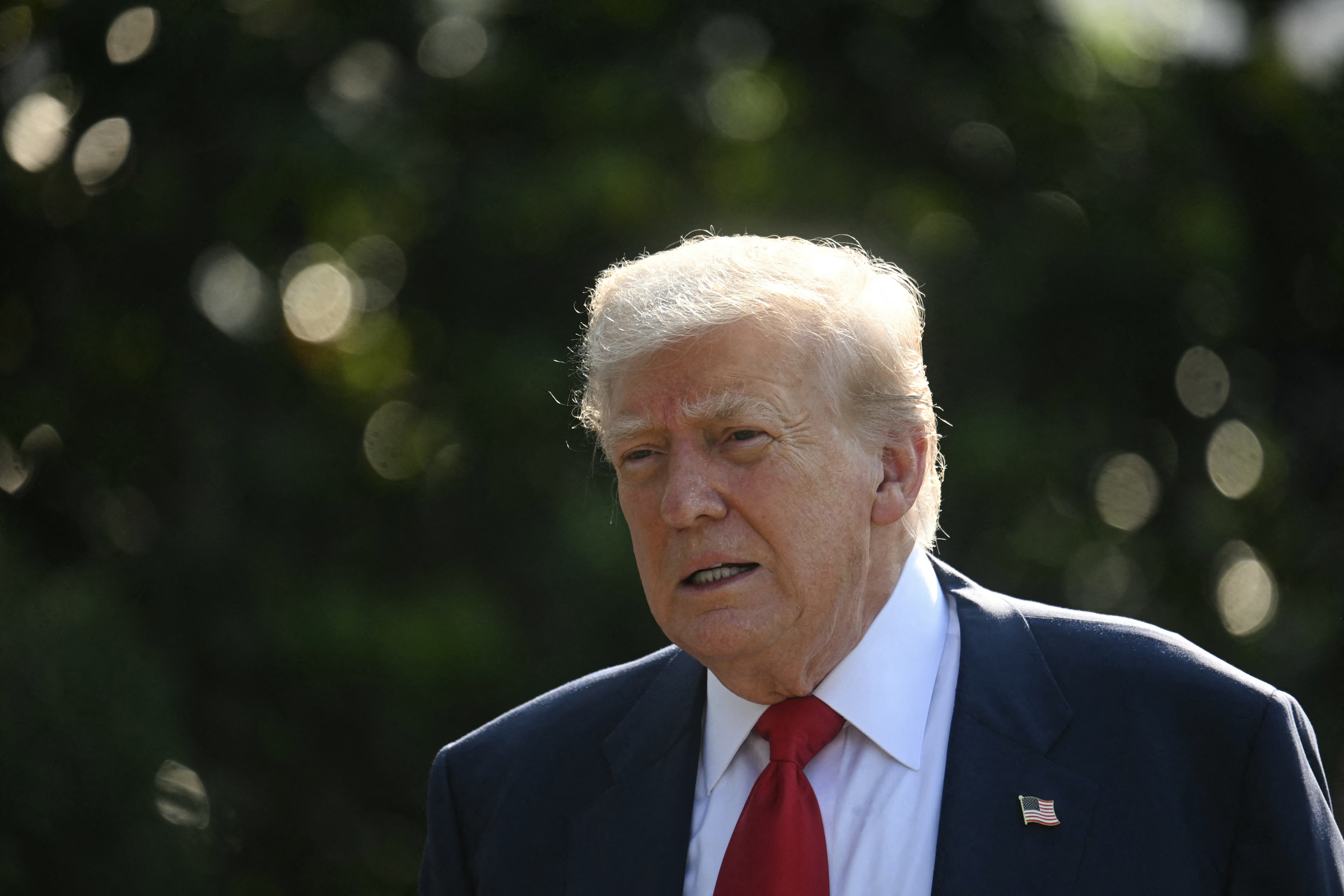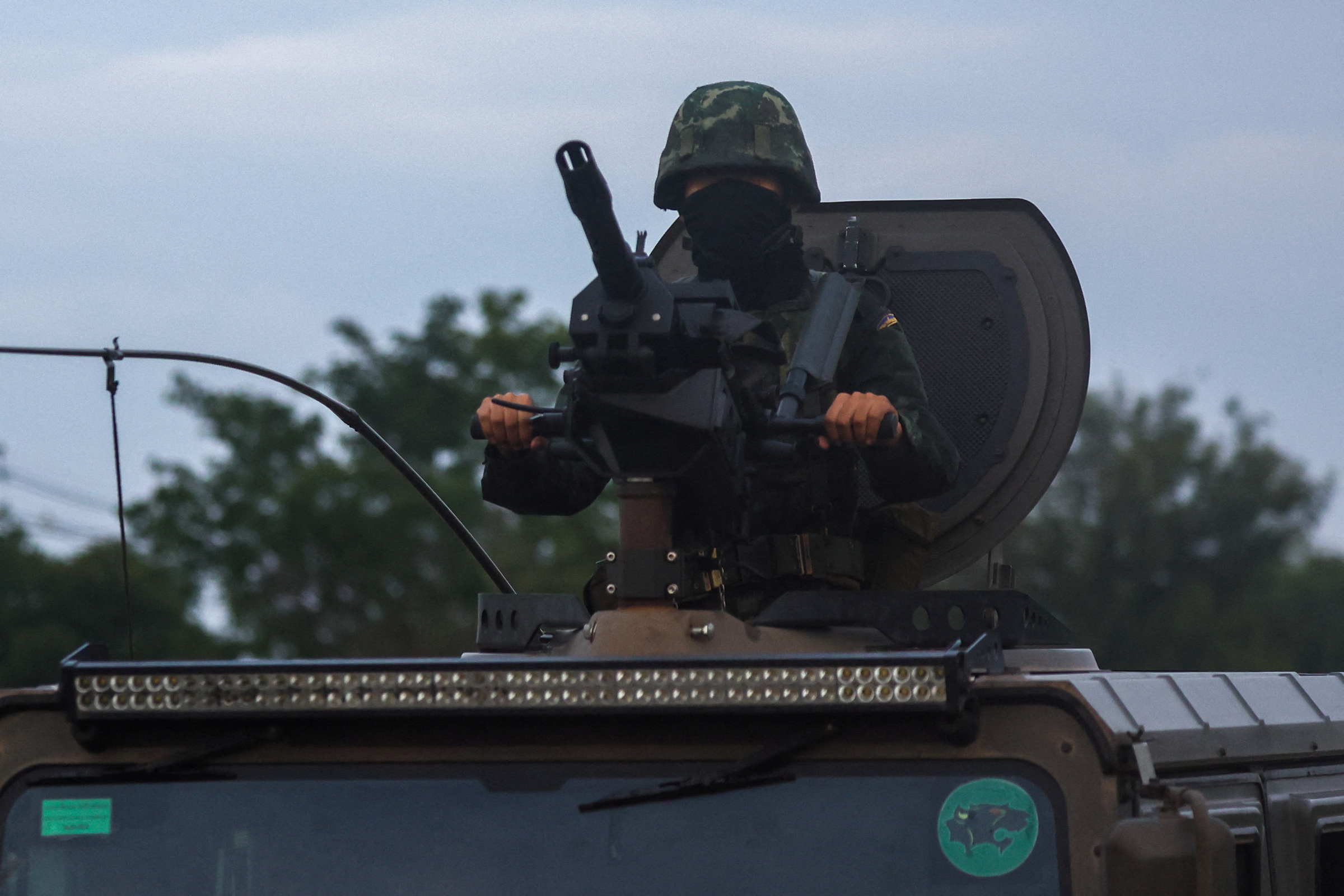Tensions between Thailand and Cambodia escalated into armed conflict on 24/7, when soldiers from both sides exchanged fire near the disputed Ta Moan Thom temple. The fighting spread along the border, with both sides using heavy weapons. The clashes resulted in at least 30 deaths and displaced over 200,000 people.
Malaysia, the 2025 ASEAN chair, immediately attempted to mediate between the two member states. Malaysian Prime Minister Anwar Ibrahim spoke with leaders from both Cambodia and Thailand.
However, by 26/7, the situation showed no signs of de-escalation. Cambodian Prime Minister Hun Manet stated that Thailand initially agreed to a Malaysian-proposed ceasefire, but later reversed its position. Thai Foreign Minister Maris Sangiampongsa declared that the conflict "did not require third-party mediation."
Sources say US President Donald Trump decided to intervene on 26/7, after an emergency UN Security Council meeting the previous day failed to produce a ceasefire resolution.
 |
US President Donald Trump at the White House on 27/7. Photo: AFP |
US President Donald Trump at the White House on 27/7. Photo: AFP
Trump's mediation efforts began with a call to Hun Manet. The US president posted about the calls on Truth Social, his "social media diplomacy," as he did during the Israel-Iran conflict in June.
"I just spoke with the prime minister of Cambodia about ending the war with Thailand. I'm about to call the acting prime minister of Thailand to propose a ceasefire, to end the fighting. Coincidentally, we are in trade negotiations with both countries, but we will not continue to do that if they are still fighting," Trump wrote at 10:28 PM Bangkok time on 26/7. He used the word "war," while both Thailand and Cambodia described it as a "conflict" and neither had officially declared war.
Eleven minutes later, Trump updated his post with the content of his exchange with Thai Acting Prime Minister Phumtham Wechayachai, saying that Bangkok also wanted a ceasefire and peace. "I will convey the message to the Cambodian side now. Ceasefire, peace, and prosperity will all be the obvious results. We will soon know," the US president wrote.
At 11:23 PM, Trump posted a third update, stating that the leaders of Thailand and Cambodia had agreed to meet to "reach an immediate ceasefire and peace agreement." He reiterated the trade negotiations as leverage.
"They also want to return to the trade negotiation table with the US, but we think this is not the right time until the fighting ends," he wrote.
The US president expressed his "honor to cooperate with both nations with long cultural histories. I hope the two countries will reconcile in the years to come. When everything is done and peace is within reach, I look forward to completing trade negotiations with both nations."
The US president's message, both a warning and persuasion, received positive responses. At 2 AM on 27/7, Prime Minister Hun Manet posted on Facebook about his call with Trump, declaring that Cambodia wanted "an immediate ceasefire and peace between the two nations."
Acting Prime Minister Phumtham stated the same day that he had told Trump that Thailand agreed in principle to a ceasefire. He asked the US president to inform Cambodia that negotiations should be conducted as soon as possible and that he "wanted to see real goodwill from the Cambodian side."
Observers noted that trade was also one of the "weapons" Trump used to push India and Pakistan to negotiate an end to their border conflict in May. On 2/4, the US president announced retaliatory tariffs against US trading partners worldwide, which roiled global financial markets, before suspending their implementation for 90 days to allow for negotiations with Washington.
The US initially imposed a 36% tariff on Thai goods and 49% on Cambodian goods. In early July, Trump sent a letter announcing new retaliatory tariffs, with both Thailand and Cambodia facing 36%, effective from 1/8. These were high tariffs, and both countries were trying to negotiate with the US to reduce them before they took effect.
Nation Thailand reported that Trump's pressure came at a crucial time for Thailand, as the country had just submitted a tariff proposal to the Office of the United States Trade Representative (USTR) the previous week and was "full of hope for a trade agreement before the 1/8 deadline."
Thai Deputy Prime Minister and Finance Minister Pichai Chunhavajira had previously hoped that the tariffs Bangkok faced could be adjusted in line with other ASEAN countries. He reiterated this message on social media on 27/7.
Sources from the Thai government confirmed that Washington's trade negotiation team had been ordered to suspend all discussions with both Bangkok and Phnom Penh until a ceasefire was reached, indicating that the US president's warning was not empty.
"Thailand may have to temporarily accept the 36% tariff rate until the border conflict is resolved," the source said.
 |
Thailand deploys armored vehicles to Buri Ram province on 25/7. Photo: AFP |
Thailand deploys armored vehicles to Buri Ram province on 25/7. Photo: AFP
In the negotiations today, in addition to the delegations from Cambodia and Thailand, two major powers, the US and China, also sent representatives. US Secretary of State Marco Rubio said US officials were present in Malaysia to support the peace talks, while China also sent a delegation.
Gregory Poling, a Southeast Asia expert at the Center for Strategic and International Studies (CSIS) in the US, said that while Trump's potential to accelerate ceasefire negotiations was positive, he also warned of potential consequences.
"Neither Cambodia nor Thailand will be happy with trade being 'weaponized' to achieve political goals. And if a ceasefire is reached but one or both countries still don't have a trade agreement with the US before the 1/8 deadline, they may well see it as a breach of faith," Poling told Reuters.
Nhu Tam (According to Washington Examiner, Reuters)












